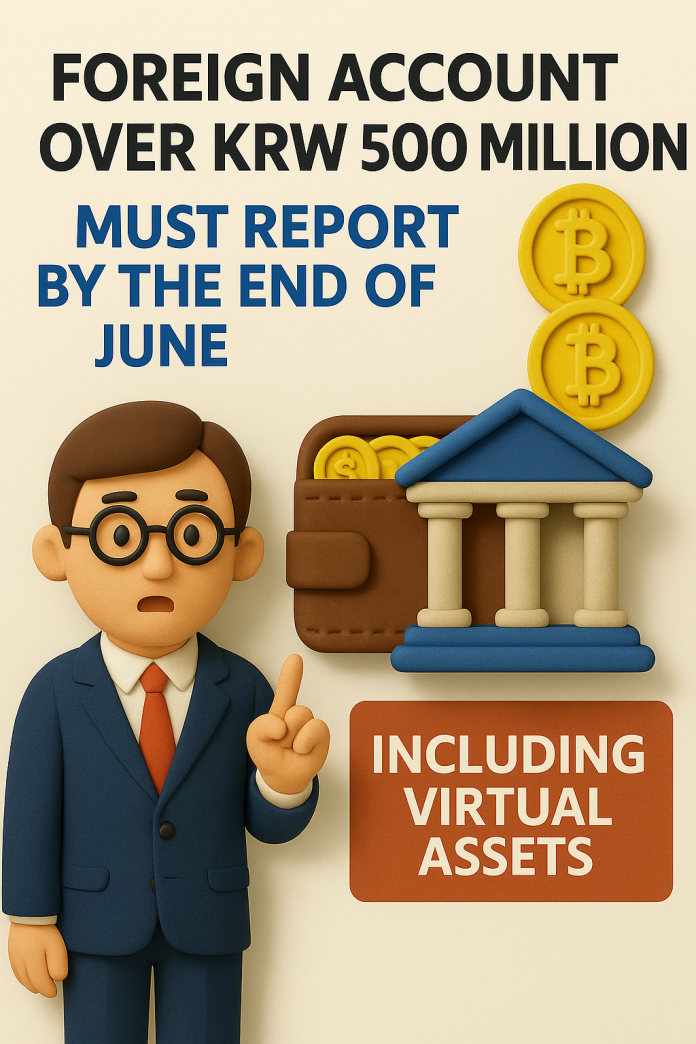
South Korea’s National Tax Service (NTS) has issued a reminder that residents and domestic corporations must report overseas financial accounts by June 30, 2025, if their monthly-end balances exceeded KRW 500 million (approx. USD 360,000) at any point during 2024. Notably, foreign cryptocurrency accounts are also subject to this requirement, reflecting expanding oversight of digital assets.
Even One Day Over the Limit Triggers Reporting
The rule applies to any overseas financial account, including bank deposits, stocks, bonds, funds, and insurance. As of 2023, this also includes cryptocurrency accounts held on foreign exchanges or custodial services, such as Binance, KuCoin, Coinbase, and other platforms based outside Korea.
If an individual’s or corporation’s total overseas account balances exceeded KRW 500 million at the end of any month during the 2024 calendar year—even just once—they must file. Non-custodial wallets (like hardware wallets not held by an exchange) are excluded from the requirement.
For joint accounts, each account holder must report the full amount unless one party reports it entirely and others submit a declaration of joint filing.
Easy Filing via Hometax or SONTAX
Taxpayers can file their overseas account report using the NTS’s Hometax portal or the SONTAX mobile app. Paper submissions are also accepted. Required details include account numbers, institution names, balance amounts, and asset types. For crypto accounts, holders must report the number and type of assets held, converted into Korean won at the relevant date.
Penalties Up to KRW 1 Billion for Noncompliance
Failure to report, or underreporting, may result in a penalty of 10% of the undeclared amount, with a maximum fine of KRW 1 billion. For accounts exceeding KRW 5 billion (approx. USD 3.6M), criminal charges and public disclosure of names may apply.
The NTS emphasized that the policy is aimed at curbing tax evasion, offshore hoarding, and illegal capital outflows through foreign crypto channels. As global pressure builds to include virtual assets in cross-border tax transparency agreements, investors using foreign exchanges should expect increased scrutiny.


![[August] How to Find a Reliable Crypto Influencer: A Guide](https://coinhubkorea.com/wp-content/uploads/2025/08/ChatGPT-Image-2025년-8월-7일-오후-02_24_28-324x235.png)



